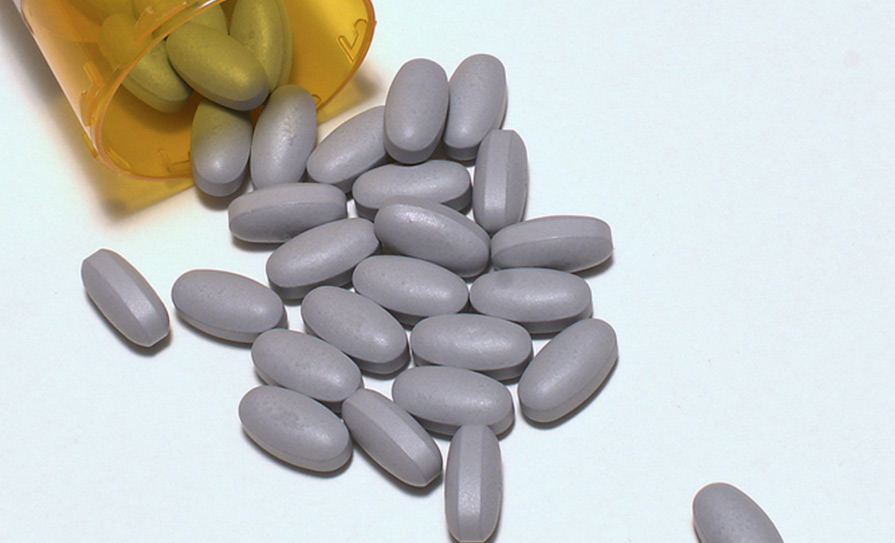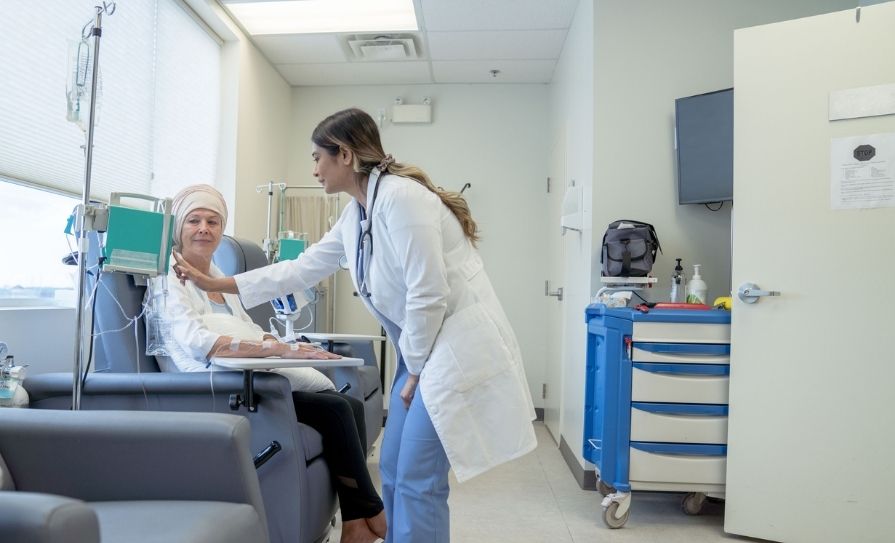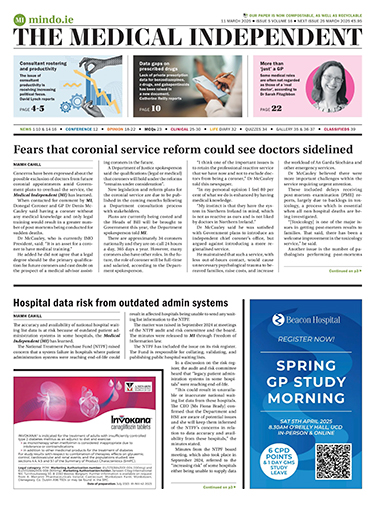Action “is being taken” to increase healthcare professionals’ awareness of the risks associated with anti-convulsant medication sodium valproate, the Minister for Health has maintained.
Minister Stephen Donnelly was responding to a question from the Medical Independent (MI) at the announcement on 26 June of the Chairperson of an inquiry into the historical licensing and use of the drug in women of child-bearing potential.
The non-statutory inquiry will commence within weeks, with Ms Bríd O’Flaherty BL as the independent Chairperson, announced the Minister.
While sodium valproate (Epilim) is an effective and essential treatment for some patients, valproate-containing medicines can cause birth defects, neuro-developmental disorders, and autism in children whose mothers take such medicines during pregnancy.
One of the inquiry’s aims is to assess the health service’s current capacity to disseminate and implement safety measures relating to use of the drug in women of childbearing potential. It will provide recommendations which may also have relevance to other anti-seizure medications.
In 2021, RCSI research found a significant proportion of healthcare professionals were not aware of the magnitude of the teratogenic risks of sodium valproate and of the full requirements of the pregnancy prevention programme mandated in 2018 by the European Medicines Agency (EMA). In January 2024, the EMA’s safety committee also recommended “precautionary measures” for the treatment of male patients with valproate medicines. These measures are to address a potential increased risk of neurodevelopmental disorders in children born to men treated with valproate during the three months before conception.
Asked by MI why immediate action would not be taken to raise awareness among healthcare professionals, the Minister said: “Action is being taken on an ongoing basis. It is essential frontline GPs and the hospital-based clinicians have all of the up-to-date information they need. So that is an ongoing discussion between my Department, the HSE, and the professional bodies.”
If the inquiry process identified the need for “additional” safeguards, communications, or training “we will implement those”.
The Minister has promised families that the inquiry will establish a timeline showing what State agencies knew about the teratogenic risks, when they knew, and what action they took. It will examine practices relating to the prescribing and dispensing of the medication.
“This inquiry will put all of that to rest. You have a right to the truth,” he said.
The services available to those impacted will also be assessed, with the Minister acknowledging that families felt current provisions were insufficient for their needs.
He also confirmed the inquiry could lead to a redress scheme if systemic failures are identified.
“If the timeline does find that there were systemic failures, then my strong preference would be the families should not have to go to court, that we should find a non-adversarial process of providing supports and compensation,” he said.
Ms Karen Keely, Chairperson of Organisation for Anticonvulsant Syndromes (OACS) Ireland, thanked the Minister for establishing the inquiry. She praised all those who have campaigned for an inquiry alongside OACS, in particular Epilepsy Ireland.
“It is the beginning of another challenge,” she told reporters. She said she hopes the inquiry will take no longer than 18 months to conclude its work.
In attendance were Ms Keely’s three adult sons – Harry, Lee, and Lorcan – who are affected by foetal valproate spectrum disorder. Lorcan commented: “I am so proud of my mum and all the hard work she put into getting to this day.”













Leave a Reply
You must be logged in to post a comment.